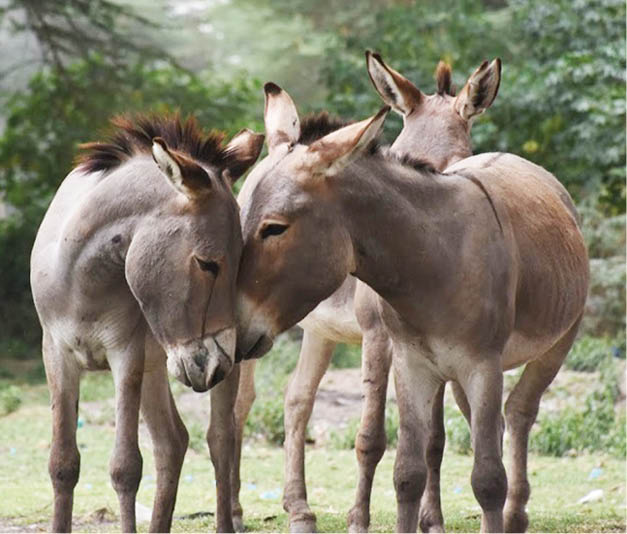Hundreds protest slaughter, exploitation of donkeys by foreign nationals
Hundreds of protesters on Wednesday staged a peaceful protest in Abuja over the “illegal” slaughter and exploitation of donkeys by foreign nationals. The protest which took place at the Unity Fountain is coming amid proposed legislation in the Senate to regulate the donkey business in Nigeria. Fighting thickens over donkey business NAFDAC destroys N1.7 trillion […]

Donkeys are said to endangered in the country
Hundreds of protesters on Wednesday staged a peaceful protest in Abuja over the “illegal” slaughter and exploitation of donkeys by foreign nationals.
The protest which took place at the Unity Fountain is coming amid proposed legislation in the Senate to regulate the donkey business in Nigeria.
Fighting thickens over donkey business
NAFDAC destroys N1.7 trillion tramadol in 5 years
Stakeholders, including lawmakers, donkey dealers, and government agencies were divided over the proposed legislation during a Senate public hearing.
While some propose an outright ban on the slaughtering of donkeys over the fear of extinction, others said the regulation of the donkey business is to curb smuggling and that ranching and breeding could address the depletion of the animal population.
The protesters said the slaughtering of donkeys had continued unabated despite directives by the Federal Government to stop the menace.
The demonstrators were led by a coalition of civic groups, including the Civil Society Situation Room, Guards against Economic Sabotage in Nigeria, Guardians of Democracy and Rule of Law, and Patriotic Nigerians against Social and Economic Injustice.
The convener Barr. Emmanuel Onwudiwe and Comrade (Engr) Ogwuche Emmanuel called for urgent action to save donkeys from extinction.
In a jointly signed statement, they said: “Donkey slaughter and exportation has no doubt become a juicy economic platform that is capable of injecting N60 billion into the Nigerian economy by way of direct investment and is also capable of getting over 250,000 Nigerians direct and indirect employment.
